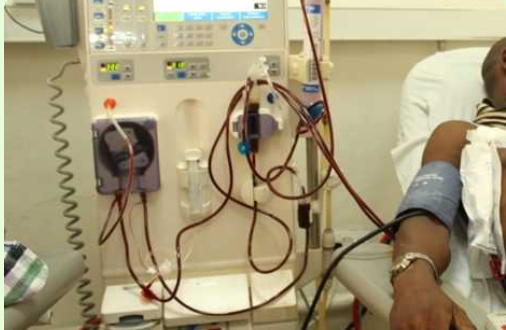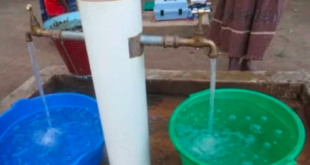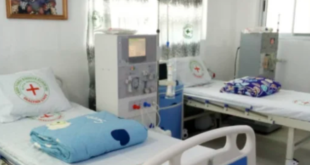The Korle Bu Teaching Hospital (KBTH) is appealing to Parliament to expedite the approval of the fees charged by the facility, especially dialysis fees.
According to the facility, it has so far incurred about GH¢2 million in debt for charging old fees for dialysis treatment.
The renal unit of the KBTH was closed in May 2023 to outpatient services following what management said was a result of the high cost of dialysis consumables.
This forced patients to seek dialysis services elsewhere, primarily in private hospitals or facilities.
A partial reopening of the unit occurred on September 27, with an announcement of an increase in dialysis treatment per session from GH¢380 to GHS¢765.42.
However, after a public uproar, this increase was reversed, and the unit remained closed to outpatients.
The renal unit of the hospital was then re-opened to patients in November 2023 after the government cleared its GH¢4 million debt.
However, just a few months after the unit was reopened, its managers say they are still incurring huge debt which may in the long run affect their dialysis services.
Shedding more light on their plight, the Director of Medical Affairs at the Korle Bu Teaching Hospital, Dr. Frank Owusu Sekyere, told the sit-in host of Eyewitness News on Citi FM, Selorm Adonoo, that approximately 2000 sessions of dialysis are conducted by the hospital’s renal unit each month.
Dr. Sekyere emphasized that this high number of dialysis sessions has contributed to the unit’s accumulated debt.
“In a month, we do about 2000 sessions of dialysis,” he said.
“I don’t think anybody has said the facility is being closed down. What we are saying is that the factors that led to the debt that accrued were due to under-recovery. Even though the government had paid the GH¢4 million, the time that the facility was re-opened till now, we are still under-recovering. For each dialysis session that is done, out of GH¢760, GH¢380 is paid. So that is also accumulating. So what we are saying is that if there is a way we can expedite the approval of the fees review so that we can break even, that should be done. Other than that, it may come to a stage where services will be affected again. I think Parliament is looking at the fees if they can expedite it and bring closure, it will be better,” he added.
Dr. Sekyere further told Selorm Adonoo on Eyewitness News that the situation highlights the delicate balance between providing essential medical services and managing financial constraints.
He noted that “Service is ongoing [at the renal unit] in part due to donations from several institutions,” but said, “We need a concrete plan to sustain the service.”
 Home Of Ghana News Ghana News, Entertainment And More
Home Of Ghana News Ghana News, Entertainment And More





